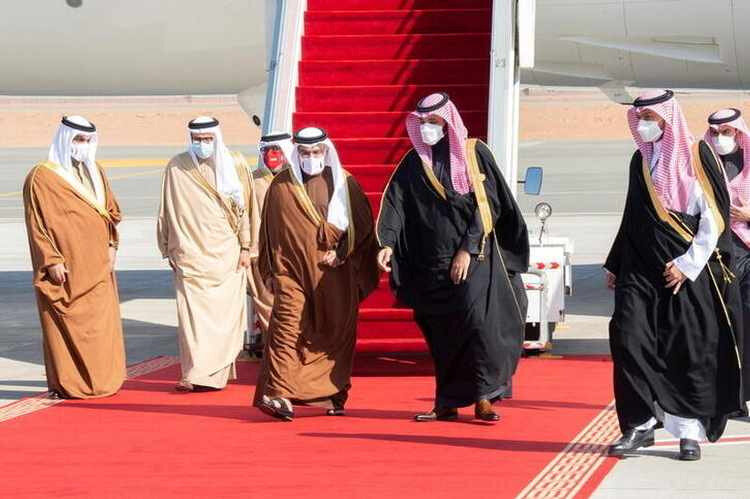U.S. think tanks: Scenarios for the GCC and advice to Israel

In the wake of Joe Biden’s arrival at the White House and his stated policy to rejoin the 2015 nuclear deal with Iran, American think tanks have remarkably speculated on the issue. In this context, a plenty of publications addressing issues directly and indirectly related to Washington-Tehran relations in the broader West Asia theatre, are also available.
Among the centers, latest publications by the Carnegie Endowment for International Peace (CEIP) and the [Persian] Gulf State Analytics (GSA) deserve consideration.
“Iranian-Qatari Relations After Al-Ula”
In an article titled “Iranian-Qatari Relations After Al-Ula”, published on February 1, Brett Sudetic, a fellow at Gulf State Analytics, puts Tehran-Doha relations in perspective in the aftermath of recent al-Ula declaration signed on January 5 at a summit aimed at resolving a three-year embargo against Qatar.
The analyst comments on “Tehran’s View of Saudi-Qatari Reconciliation” and sets scenarios in this regard. He recalls a mostly cordial relationship between Iran and Qatar since the aftermath of Iraq’s imposed war against Iran due to common regional vital interests. He argues the al-Ula summit’s outcome may have some positive regional implications for Tehran. In Sudetic’s view, Iran considers the move “is akin to a capitulation from Saudi Arabia.”
Sudetic claimed that Iran is concerned about the geopolitical consequences of the recent rapprochement.
Given the fact that Riyadh and Doha still have unresolved fundamental disputes, the author argues Iran will likely count on continued cooperation with Doha. Also, due to Doha’s support for the JCPOA in 2015 and its negative vote to the 2006 UN Security Council anti-Iran nuclear sanctions, Tehran may find the state helpful in the path of de-escalation with Washington and some regional actors in 2021. However, Saudis’ principal strategy would be building confidence between Riyadh and Doha to convince the Qataris to somewhat distance themselves from Iran.
“Netanyahu’s new campaign against the Iran deal is a risky gambit”
Aaron David Miller, a Senior Fellow at the Carnegie Endowment, advises the Israeli government to focus on old-fashioned but effective quiet diplomacy with Washington unless it prefers to engage with the Biden administration rather than act unilaterally towards Iran and the JCPOA. In parallel with Netanyahu’s rhetoric on returning to the JCPOA, Israeli army chief of staff Lieutenant General Aviv Kochavi has also used harsh rhetoric against the 2015 nuclear deal. His remarks came against a backdrop of the Israeli army’s request for $1.223 billion new funding for operational military plans for a possible attack on Iran.
Citing a report by a senior Israeli official who is well-informed of Netanyahu’s thinking, the author argues that the Israeli prime minister does not want to fight against Biden. In fact, Netanyahu's warm personal relations with Biden over four decades could be helpful to overcome misunderstandings. On the other hand, the Biden administration has regularly declared its intention to consult with Israel before making any decisions on Iran.
Also, given the configuration of the current U.S. Congress in which Democrats enjoying a majority, Netanyahu will find it more demanding to exert pressure.
Miller argues that recent pike in Israelis’ rhetoric and threats regarding a revival of the JCPOA is partially rooted in Israeli domestic politics. In fact, with the late March general elections ahead, Netanyahu is struggling with several challenges among which COVID-19 pandemic and the consequent economic slowdown are quite threatening. Moreover, Netanyahu who is facing indictments for corruption, breach of trust, and fraud should appear in court within weeks. Against this backdrop, he can divert the Israeli public’s attention away from domestic issues to focus on Iran and security as a smart election politics. The American analyst believes that increasing Israeli rhetoric and its excessive threats to attack Iran cannot be considered much more than a means of exerting pressure on the Oval Office. Meanwhile, Miller does not rule out the possibility of any military acts from Israel and neither Tehran nor Washington can not be certain about it.
